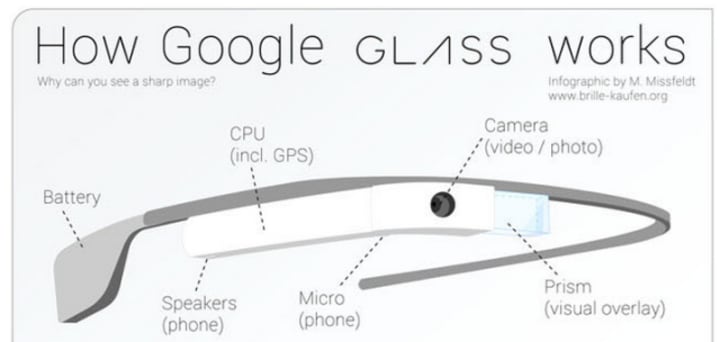Transhumanism and You
Let's be honest: Transhumanism isn't exactly a topic that's widely discussed over coffee, but it's relevant, it's happening, and it's here to stay.

Technology has already changed the world as we know it for good, whether it’s how you get to work in the morning, keep in touch with loved ones, or socialize. Experts are constantly reporting new information on the way developments in technology, like social media for example, are changing our brains. Experts have found that multitasking across multiple media platforms is resulting in measurable physical changes in the brain such as decreased grey matter in the anterior cingulate cortex. In layman’s terms, that means people who are checking multiple different medias in a short span of time are experiencing a decrease in their ability to perform cognitive control tasks (process information and adapt accordingly) as well as social and emotional difficulties. If something as recent as social media is having such a profound effect already, how deep do these changes really go?
The answer is deeper than we’ve ever realized. Technology isn’t just changing how we do what we do, it is changing us into a new species entirely. Humans as a species are compelled by our survival instincts to enhance our physical and mental capabilities, and most recently this has been augmented by technologies that expand our preexisting capabilities, like Lockheed Martin’s Human Universal Load Carrier (HULC), an exoskeleton being designed for the military that enhances the soldier’s endurance, strength, and speed. These developments are in line with a movement being called “Transhumanism,” which aims to understand what exactly makes us human and asserts that we have an imperative to enhance and overcome our human limitations through technology.

Dr. Nayef Al-Rodhan is a Yale and Harvard educated neuroscientist who is widely considered to be the leading expert on transhumanism. Dr. Al-Rodhan has postulated that all humans are motivated by factors that he collectively calls “Neuro P5”: Power, profit, pleasure, pride, and permanence (longevity). The idea is simply that any technology that incorporates any one or combination of Neuro P5 will be adopted and become a part of our daily life. From Dr. Al-Rodhan’s perspective, transhumanism is inevitable, and the only real remaining questions are how we are going to come about fulfilling the movement and at what cost we will pursue it. So if we are truly being artificially evolved into some species that surpasses our existing biological capabilities, then there are some pretty important questions that need to be answered. What technologies could facilitate that transhuman leap? What will or could those transhuman changes look like? Perhaps most worrisome of all, to what lengths will we go to fulfill this perceived destiny?
In Dr. Al-Rodhan’s words, “We are now on the cusp of a period of convergence in which technologies that were previously considered and studied separately (for example biotechnology, information technology and cognitive science) are being approached in an increasingly interdisciplinary fashion." Dr. Al-Rodhan is referring to a recent increase in the implementation and even integration of previously only hypothetical or lab-confined experiments. Experiments and technologies such as the previously mentioned HULC, or Google’s newest accessory Glass, which has already been dubbed the “Transhumanist’s Swiss Army Knife” and with good reason—Glass allows users to communicate in languages they are unfamiliar with, review important information about their surroundings in their peripheral vision, and even "offload" their memories into a drive on Google Glass for later recall. Glass is a prime example of a technology that appeals to multiple Neuro P5 factors (pride, power, and pleasure for example) and that is distinctly transhuman in the ways that it enhances our cognitive capabilities past what would be traditionally biologically possible.


Darwinian evolution is the most thoroughly researched and logical explanation for how our species came to be the way it is today. Darwinian evolution can be summarized as a process in which “...random genetic mutations occur within an organism's genetic code, [and] the beneficial mutations are preserved because they aid survival—a process known as ‘natural selection.’ These beneficial mutations are passed on to the next generation. Over time, beneficial mutations accumulate and the result is an entirely different organism (not just a variation of the original, but an entirely different creature)” (“Darwin’s Theory of Evolution”). This is the running theory on how and why we are the creatures we are today, but one of the key aspects of natural selection is that it is a slow process that takes generations to unfold. Unnatural selection, as National Geographic’s James Owen puts it, is happening very quickly relative to the usual genetic stressors that result in natural selection. Other factors are leading to changes in the human condition, factors like genetic modification and the introduction and integration of modern technology, and these factors are accelerating us as a species much faster than anyone anticipated. We are beginning to be able to effectively manipulate and shape our own species through artificial means, becoming the engineers of our own evolution so to speak. The transformative nature of the advancements we’ve made hold boundless promise, but they also raise many questions about the direction we could going and what these advancements mean in terms of the human experience.
Francis Fukuyama is a well-known political scientist who is best known and recognized for his "End of History" thesis and has raised some very poignant and prevalent questions about the transhuman movement and what it could entail for us as moral beings and as a species. Fukuyama first expresses concern that the outcome of these developments, while exciting, are impossible to predict and therefore dangerous. He also points out that transhumanism threatens one of the fundamental tenets of liberal democracy: equality, regardless of color, class, status, or ability. “If we start transforming ourselves into something superior, what rights will these enhanced creatures claim, and what rights will they possess when compared to those left behind? If some move ahead, can anyone afford not to follow?” says Fukuyama. This question is troubling enough as is with 45 million Americans living below the poverty line, but when thinking about the implications this movement could hold for citizens of the world’s poorest countries, it’s downright scary.
The foundation of modern equality is that simply being human transcends whatever differences we have, whether it be race, class, religion, any one of numerous factors that develop people into unique human beings. This belief that individuals have inherent value is at the heart of liberal politics, and modifying the humanity that gives all individuals value is at the heart of the transhuman movement. Transhumanism seeks to transcend and weed out mankind’s mortal, natural flaws in favor of something "better," but we are complex species that is the product of thousands of years of evolution, and every flaw that we have is closely linked to the things that have led us to rise above the rest of the animal kingdom. Without exclusivity, we wouldn’t be loyal; without greed, we would not be able to provide for those we love; without aggression and violence, we could not be passionate, or protect our loved ones. This list goes on and on, and modifying even one of these characteristics, however undesirable they can be, means that we will also be modifying the things that make the human experience worth participating in. This is not to say that the siren call of transhumanism’s promise should be ignored, quite the opposite. Transhumanism can be used to amplify and extend the human experience, to gift it to those who otherwise would be removed from it too soon, but it should be approached and entertained with caution and the strictest ethical codes applicable, because in the end we truly cannot predict where transhumanism might take us next.
About the Creator
Emily Sandlin
atx / gemini
Enjoyed the story? Support the Creator.
Subscribe for free to receive all their stories in your feed. You could also pledge your support or give them a one-off tip, letting them know you appreciate their work.






Comments
There are no comments for this story
Be the first to respond and start the conversation.